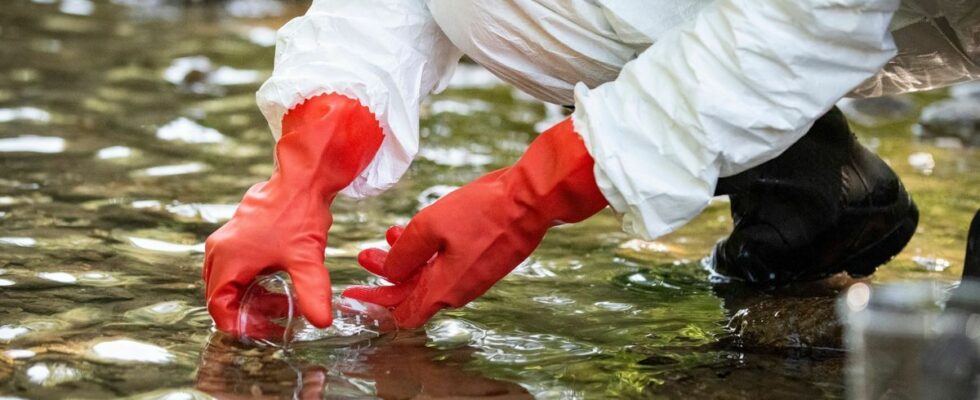Published on
updated on
Reading 2 min.
Water pollution has many consequences for the fauna and flora that inhabit them. Researchers have recently discovered that freshwater fish exposed to residues of drugs such as antidepressants are likely to change their behavior in the face of risks. Changes in their ability to reproduce have also been observed.
Microplastics, PFAS, bacteria, heavy metals… A real scourge for aquatic fauna, river pollution is omnipresent and manifests itself in various forms. Scientists from the universities of Monash (Australia) and Tuscia (Italy) have looked at the specific pollution caused by drug residues dumped into the waters and the risks for the fish that inhabit them.Pharmaceutical pollutants are widely distributed in aquatic ecosystems globally, but their impact on animal behavior, life history, and reproductive distribution remains poorly understood.“, emphasize the authors of this research published on August 26 in the Journal of Animal Ecology.
The researchers tested a widely used pharmaceutical pollutant, fluoxetine (better known by its trade name Prozac), by placing 3,600 wild guppies in an aquarium and exposing them to low and high levels of the drug for five years. The goal of the experiment was to understand how these residues might affect the behavioral traits and reproduction of these freshwater fish, which are native to rivers in South America and the Caribbean.
The study authors found differences in fish exposed to fluoxetine, particularly in their activities and behavior in response to risks. High exposure to these drugs may lead to an increase in the use of refuges. In other words, guppies may tend to be less reckless under the influence of Prozac. This, according to the scientists, could increase their vulnerability, as these fish have become less able to adapt their behavior to different contexts.
“Our findings add to a growing body of evidence showing similar behavioral disruptions in exposed wild animals. Other studies have shown that fluoxetine can make fish less active. This could disrupt their ability to compete for food and mates.“, comment the researchers, also authors ofan article published in the media The Conversation.
Effects that may vary from one species to another
Changes in male guppies’ reproductive performance were also observed. While low-level exposure to the pollutant altered male body condition and increased the size of the gonopods (reproductive organs), it also reduced the speed of the fish’s sperm, which may be associated with reduced reproductive success in males exposed to fluoxetine.Interestingly, low-dose fluoxetine treatment had greater effects than high-dose fluoxetine treatment. But this type of dose-dependent relationship is often observed for these drugs and various mechanisms may be at play, such as desensitization at higher doses“, the researchers specify.
They note, however, that the average effects of fluoxetine on behavioral traits are not “not always consistent across species and may vary depending on exposure period and dosage“. Hence the need to carry out more in-depth studies on this specific issue.
